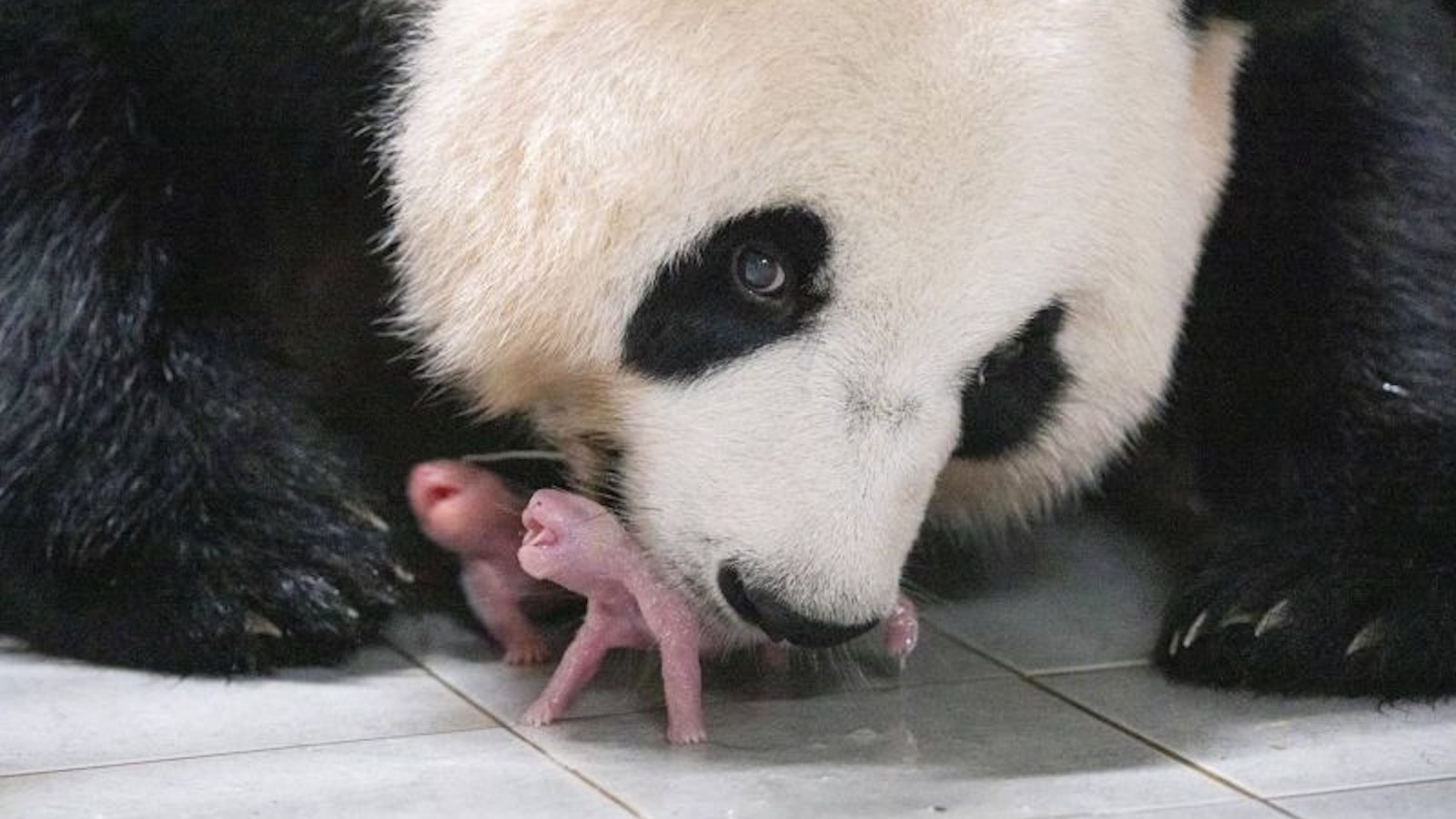(CNN) — A giant panda has given birth to the country’s first twin cubs at a South Korean zoo.
The palm-sized cubs were born on July 7 at the Everland Resort theme park southeast of the capital Seoul, the zoo said in a statement on Tuesday.
A video posted on YouTube shows the first cub, weighing 180 grams, being picked up by its mother, Ai Bao, on her face. An hour later, the second cub was born, weighing 140 grams.
The birth of these twin pandas is considered rare: pandas have less than a 50% chance of giving birth to twins, and in the wild they struggle to survive because mothers can often only care for one of their cubs.
The zoo said in a statement that both the mother and her offspring are in good health, and staff are providing post-natal care based on their experience helping the 9-year-old panda give birth to her first cub. Fu Bao, Three years ago.
A keeper holds a panda Fu Bao cub in 2020, 100 days after birth. (Credit: JUNG YEON-JE/AFP/Getty Images)
“I am very happy to announce the birth of twin baby pandas for the first time in Korea. [del Sur]Kang Seol-won, the zookeeper in charge of setting up the panda enclosure at the park, said. “I will continue to take good care of them so that they can become a panda family that brings hope and happiness to the public.”
The mammals, known for their fondness for bamboo, are native to China and are considered a “national treasure.”
For decades, Beijing has sent them abroad as ambassadors to show goodwill, known as “panda diplomacy.”
The twins’ parents, Ai Bao and Lee Bao, were loaned to South Korea in 2016 and gave birth to Fu Bao, the first panda born locally, in 2020. The newborn twins are yet to be named.
Jung Dong-hee, director of Everland Zoo, called the birth of the pandas “another important achievement of inter-Korean cooperation.” [del Sur] and China in panda research.
Giant pandas have a fertile period throughout the year, lasting one to three days at a time, and rarely mate as they prefer to live alone in their natural habitats.
Given the challenge, he said, the zoo analyzed hormonal changes between pandas to look for the best mating window and observed behavioral changes in the mother after pregnancy.
There are an estimated 1,800 pandas in the wild, mainly in the Sichuan mountains of western China.
Currently, Beijing is lending its pandas About 20 countries.


:quality(85)/cloudfront-us-east-1.images.arcpublishing.com/infobae/BH6NLAQGXJGADFWTENBUV7Z7RQ.jpg)
:quality(85)/cloudfront-us-east-1.images.arcpublishing.com/infobae/3GK63ATFOMFAYNUAQKUL4WUJFM.jpg)

:quality(85)/cloudfront-us-east-1.images.arcpublishing.com/infobae/SJ35ZLSJ5NB4BWVRJPSK74P7AQ.jpg)